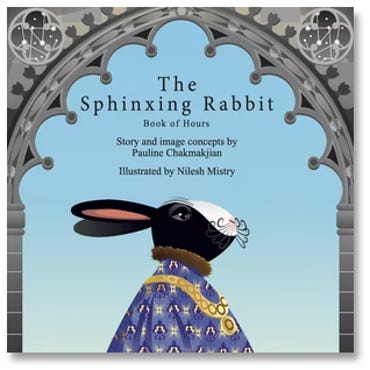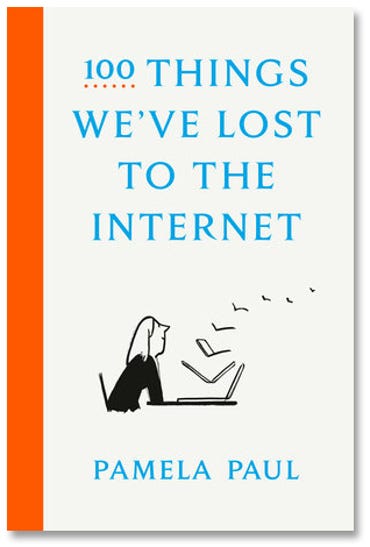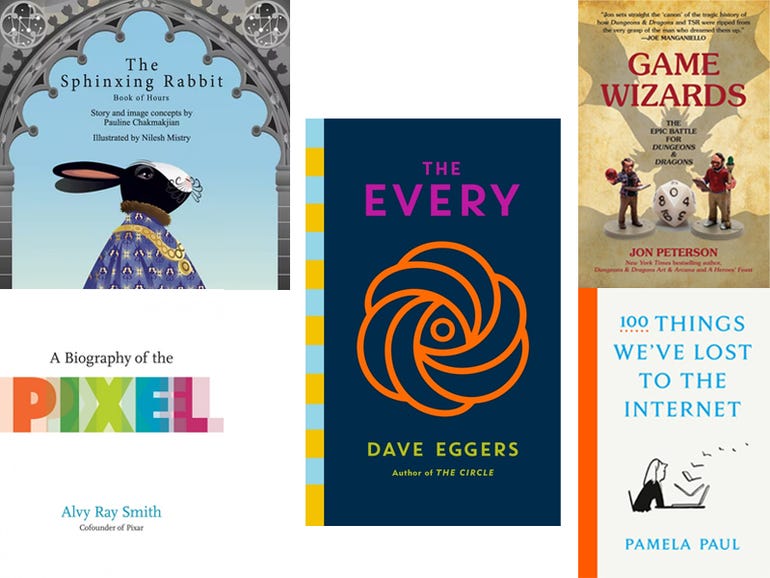Book review roundup: Five titles to keep you informed and entertained this holiday period

The Sphinxing Rabbit Book of Hours • By Pauline Chakmakjian; Illustrated by Nilesh Mistry • Panoma Press • 64 pages • ISBN: 978-1-784529-50-5 • £14.99
It is safe to say that nothing like Pauline Chakmakjian’s The Sphinxing Rabbit Book of Hours (Les Tres Riches Heures du Duc du Bunny) has crossed anyone’s desk before. Gorgeously illustrated by Nilesh Mistry in the carefully copied style of the eponymous and famously elaborate medieval manuscript, this children’s book-styled story sends a modern-day rabbit time-travelling back to the Middle Ages. There, she encounters the Duc du Bunny, whom she quickly sees is clearly in need of a detailed education about…blockchain and its transformational democratic power.
This book is the second in a series intended to entertain while communicating tenets of freedom. It seems impossible that there isn’t someone in your life who would find this book hilarious and delightful. Even a dedicated blockchain skeptic will love the pictures. This book is small, but perfectly formed.

Game Wizards • By Jon Peterson • MIT Press • 408 pages • ISBN: 978-0-262-54295-1 • $24.95
It is nearly 50 years since the launch of the first edition of a small book of rules whose originators, Gary Gygax and Dave Arenson, thought was a “$300 idea”. That was the game all the world knows today as Dungeons and Dragons, and its release set off an industry of fantasy games that grew into mainstream entertainment and remains successful to this day.
To write the origin story Game Wizards, Jon Peterson has consulted contemporaneous personal correspondence among the creators, fanzines, convention programmes, corporate documents, financial filings, court records, and dozens of personal interviews. The result is a lively and readable history of the game, its first owners, and their fumbling attempts to run a business. Peterson notes that he tries to show these events as they would have appeared to the actors at the time, when they couldn’t know the outcome.
If I knew someone starting a business, I might recommend this book as an anti-role model. But few startup founders fall so haphazardly into success or are so free of professional advisors these days. Today’s hobbyist communities — unlike the 1970s and 1980s computer and gaming clubs that gave Microsoft and Dungeons and Dragons owner Tactical Studies Rules (TSR) their first customers — invariably have people pondering how to conjure unicorns from the ideas springing up around them.
Gygax and Arenson did not have an easy time. First, there were the struggles of the early years and later internal political and legal battles saw the founders pushed out of their company and at odds with each other. As Peterson tells it, Gygax and Arneson were never able to keep up with the success they created. The book recounts this history, framing it with the crucial year of 1985: Arneson had already left, a decade earlier, and by the end of this year, Gygax was out and the company was in charge of non-gaming newcomer Lorraine Williams. She lasted a decade; in 1997 the game was sold to Wizards of the Coast, now a Hasbro subsidiary. But the game, Peterson reminds us, is more popular than ever.
Since 2000, when digital media overwhelmed its analog counterpart, almost the only places you’ll reliably find analog media is museums and kindergartens, Pixar co-founder Alvy Ray Smith writes in A Biography of the Pixel. How did that happen? Smith sets out to tell us.

A Biography of the Pixel • By Alvy Ray Smith • MIT Press • 560 pages • ISBN: 978-0-26254-245-6 • $39.95
In his history of Digital Light — his term for the universe of virtual imagery we now live in — Smith explains how we learned to separate images from their physical media. The ‘pixel’ Smith is interested in is not so much the glowing cells — more correctly termed ‘display elements’ — that make up the picture on your screen, but the technology that turns invisible bits into something you can see. For Smith, the pixel is an “organising principle”: you can’t take the display element from your laptop and put it on your phone, but you can send a pixel from one to the other and it will display correctly.
Smith discusses three ideas that make up Digital Light: waves, computers, and pixels — no maths required, he hastens to add (but it’s here if you want it). He begins with the scientific breakthroughs of Joseph Fourier (waves), Vladimir Kotelnikov (sampling), and Alan Turing (computation), and goes on to explain their application. Along the way, Smith reminds us that few great ideas come from the mythical lone genius. Many important innovators and alternative paths tend to be left out of such stories, an issue he tries to correct here. He ends with a reminder that people — as actors, animators, and artists — are crucial to our desire to engage.

The Every • By Dave Eggers • Penguin • 608 pages • ISBN: 978-0-241535-4-93 • £12.99
When last seen, at the end of Dave Eggers’ book The Circle, Mae Holland, a new recruit to the customer service department of data-driven giant The Circle, was rejoicing in her newfound commitment to total transparency (“privacy is theft”).
In the ten years since, she has apparently done well; at the beginning of Eggers’ new sequel, The Every, she is the company’s CEO, a position she’s achieved in record time without ever contributing a single significant new idea to the company, which has been stagnating since The Circle. With one exception: The Circle has become The Every as part of acquiring “an ecommerce behemoth named after a South American jungle”. In real life, the acquisition, as unlikely as it is, would probably be the other way around.
The Every has managed to infiltrate its dataveilling ways into all of society. Few places are left without watching cameras, and those blind spots feature warning signs that incomers proceed at their own risk. One willing to take that risk is Delaney Wells, who, as the novel opens, is presenting herself at the gates of The Every for a job interview. Her mission, towards which she has been building with years of carefully curated fake behaviour: get hired, and destroy the company from within. Despite its AI systems designed to detect frauds, her interviewers do not see through her social engineering.
Eggers warns at the beginning that the book’s many anachronisms are deliberate. Maybe so, but they’re still jarring; in some places, the society Eggers describes seems incrementally progressed from his previous book, while in others he’s describing 2019. Eventually, the amount of expository detail becomes wearing, and, sadly, the net result feels like outtakes from the much better The Circle.

100 Things We’ve Lost to the Internet • By Pamela Paul • Crown • 288 pages • ISBN: 978-0-59313-677-5 • $23.99
We’re generally so focused on the new things the internet lets us do that we forget there are also losses other than privacy. In 100 Things We’ve Lost to the Internet, Pamela Fryman, editor of the New York Times Review of Books, reminds us of some of them: designated drivers (lost to Uber and Lyft), paper newspapers (lost to the web and Facebook), attention spans, handwritten letters, and airplane encounters (lost to in-flight digital entertainment screens).
You may have noticed the slight flaw: a number of things on Fryman’s list aren’t really lost to the internet. They’re lost to smartphones (remembering phone numbers and maps), apps, smart speakers and voice assistants (politely asking for things), and computers generally (filing). Nonetheless, the book contains some smart social observation — and, for older age groups, nostalgia. For younger folks who’ve never balanced a chequebook, lost a ticket, or got lost (as humans did for millennia before GPS): this is how we all lived! Read and marvel.
Read more book reviews





Pingback: купить циалис онлайн
Pingback: same day weed delivery near me